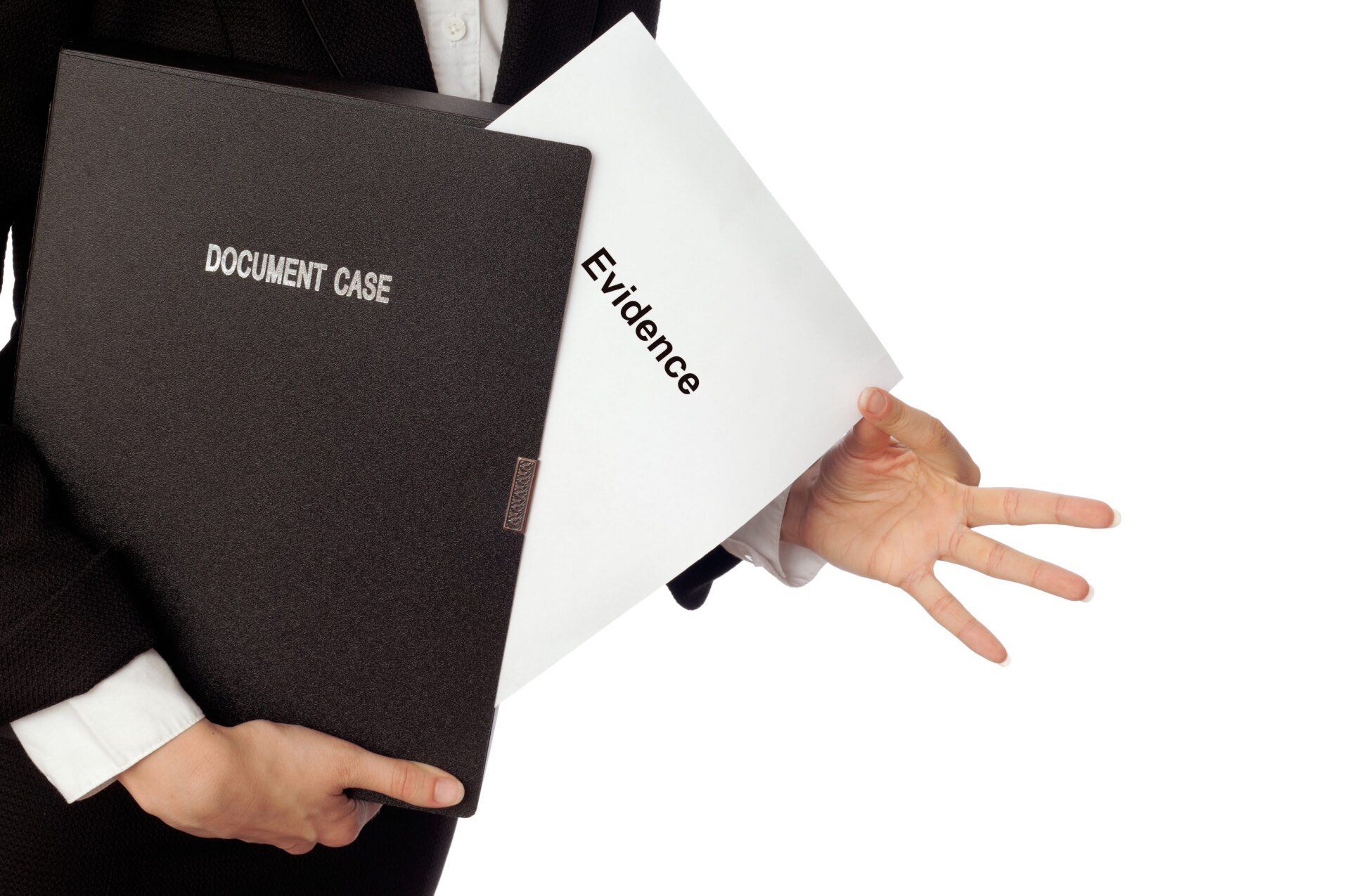
In today's judicial system, the law considers individuals accused of crimes innocent until proven guilty. The burden of proof lies with the prosecution, which uses evidence to make its case. However, defendants can also present evidence in their favor, which can potentially lead to a dismissal of the charges, a verdict of not guilty, or a reduced sentence.
If you must stand trial for a criminal offense, you need to understand some basic facts about what qualifies as evidence, the different types of evidence that may appear in your trial, and what factors can render evidence effective or ineffective. Start by examining these questions and answers about criminal evidence.
How Do Legal Professionals Categorize Evidence?
Legal professionals recognize several distinct categories of evidence. The primary categories include real evidence, demonstrative evidence, documentary evidence, and testimonial evidence.
Real evidence involves tangible items that a jury can see, touch, or otherwise acknowledge as actual. These items might include the alleged murder weapon, lock picking tools, illegal drugs, or the victim's personal possessions. It can also include laboratory-derived materials such as fingerprints, blood samples, and DNA evidence.
Demonstrative evidence and documentary evidence bear some similarities in that they both use data to build a case either for or against the defendant. Demonstrative evidence may involve the use of charts, graphs, or diagrams, while documentary evidence commonly features personal correspondence, journal entries, and contracts.
Testimonial evidence involves sworn courtroom testimony delivered in person by an individual with some knowledge of the case. Eyewitness testimony presents the accounts of those who saw or heard events associated with the crime. Expert testimony typically comes from doctors, lawyers, and other authorities.
Another distinction involves direct evidence versus circumstantial evidence. True to its name, direct evidence shows a direct link between the item of evidence and the crime, such as a video of you allegedly committing the crime. Circumstantial evidence merely suggests a possible connection between you and the crime.
Why Does Direct Evidence Beat Circumstantial Evidence?
Direct evidence usually carries far more weight than circumstantial evidence in most types and phases of criminal trials. In most such trials, the prosecutor must establish your guilt beyond a reasonable doubt. This standard means that a jury cannot reasonably assume anything other than the defendant's guilt.
Circumstantial evidence usually makes more of an impact in civil cases. Many civil cases require only that the prosecutor establish the defendant's guilt as more likely than not. However, it can still strengthen and support direct evidence in a criminal proceeding.
How Does Alibi Evidence Work?
Alibi evidence can help you demonstrate that you couldn't have had anything to do with the crime you stand accused of. A prime example of alibi evidence might include witnesses testifying that they saw you at a different location at the time of the offense.
If your defense hinges on alibi evidence, your attorney must disclose that fact to the prosecuting attorneys, who may then examine the strength or weakness of the alibi. An irrefutable alibi may lead to the dismissal of your case. By contrast, prosecutors may discredit a weak alibi in court, making that evidence worthless.
What Rules Apply to Evidence Preservation?
Investigative agencies, prosecutors, and the Attorney General all have a duty to preserve any evidence that might impact the result of a criminal case. Private organizations and individuals don't have the same duty unless they collect and process evidence at the request of these law enforcement professionals.
Crime scene images, material objects recovered at the scene of the crime, forensic lab results, audio or video recordings of witness statements, and recordings of 911 calls may all require preservation under the law. Law enforcement organizations must also preserve any alibi evidence that might support your defense.
If your attorney demonstrates that the prosecution or related agents lost or destroyed evidence, you might earn the right to suppress some of the prosecution's evidence or even gain a dismissal. However, you would have to show the evidence's material value, its potential support for your defense, or deliberate loss in bad faith.
When Might Evidence Prove Inadmissible?
Neither you nor the prosecutor can necessarily introduce any and all evidence in your criminal case. For one thing, the evidence's probative value must outweigh its prejudicial value. Probative value offers objective information, while prejudicial value involves the evidence's ability to shock, horrify, or infuriate a jury.
A photograph of a murdered individual can serve as a case in point. A judge might admit this evidence on the strength of its probative value if it illustrates valuable information such as the location of a mortal wound. However, if the sheer goriness of the wound overshadows this information, the judge might pronounce it inadmissible.
As you can see, the world of criminal evidence can prove a complex one to navigate without expert assistance. Fortunately, the experienced attorneys at Cohen Law Offices know how to gather, evaluate, and use criminal evidence to help you defend yourself against a criminal charge. Contact our legal team today for a consultation.
When Results Matter Most, Call Cohen Law First.
We’re not just any law firm — we’re
Northwest Wisconsin’s trusted criminal defense powerhouse. At Cohen Law Office, criminal defense isn’t one thing we do — it’s
the only thing we do.
Focused on YOU. Fighting for YOU. Always.
Need Help After Hours? We've Got Your Back.
If you're reaching out outside of our regular business hours,
don’t worry — just
click here, and one of our dedicated team members will get in touch with you as soon as possible.

